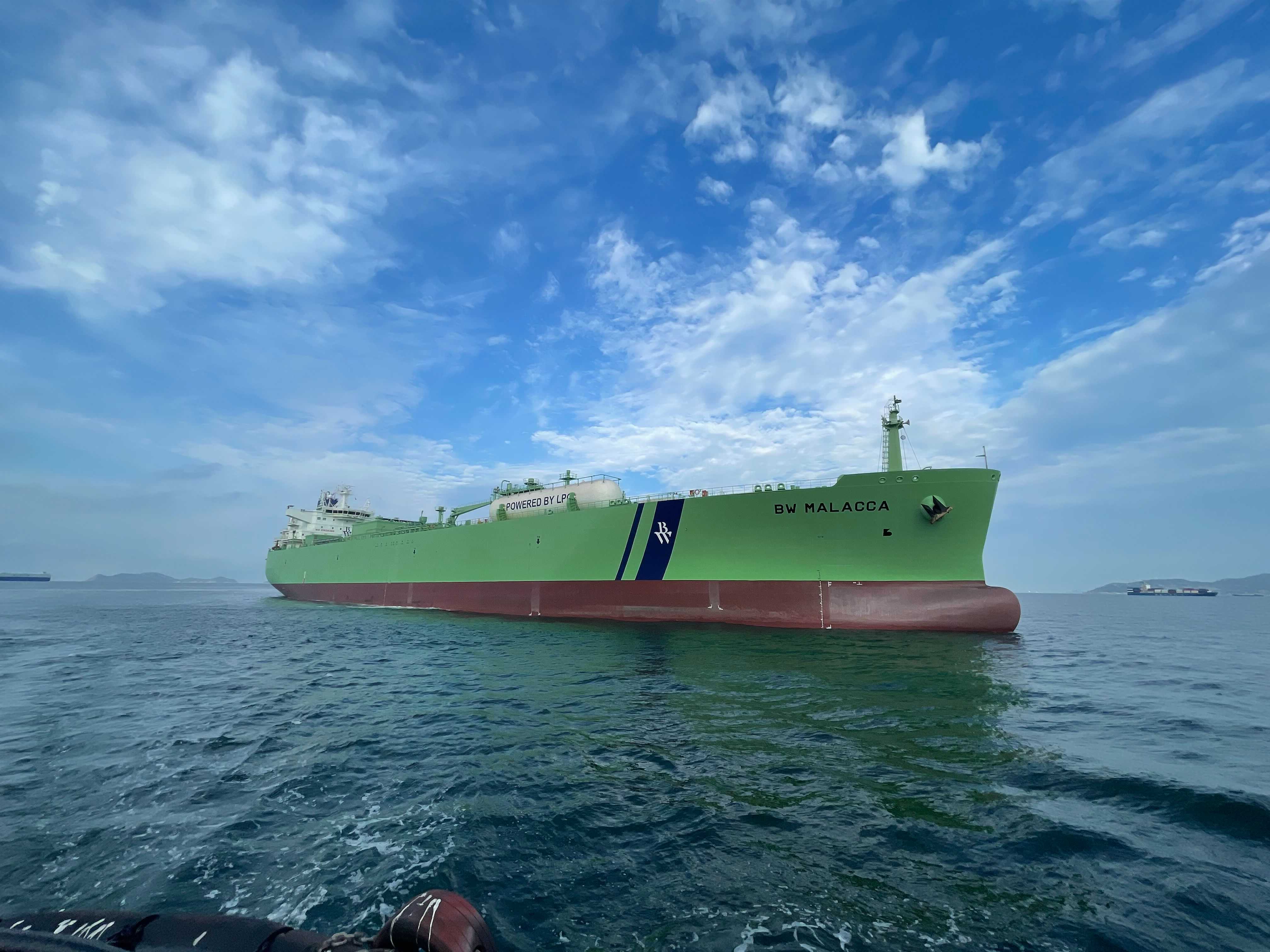15th vessel in series receives ME-LGIP engine conversion
Oslo-listed BW LPG – the world's leading owner and operator of LPG vessels – has announced that it has converted the main engine of the ‘BW Malacca’ to dual-fuel running. The last such conversion for a series of 15 LPG carriers, the ship’s MAN B&W 6G60ME-C9.2 type engine was retrofitted to an MAN B&W 6G60ME-C9.5-LGIP dual-fuel type capable of operating on fuel oil and LPG.

The work was carried out at Yiu Lian Dockyards in Shenzhen, China in conjunction with the vessel’s scheduled, five-year docking and under the supervision of MAN PrimeServ, MAN Energy Solutions’ after-sales division. The BW Malacca has since passed sea trials.
Pontus Berg, Executive Vice President (Technical) at BW LPG, expressed appreciation for MAN Energy Solutions and said: “We could not have accomplished this ambitious project on our own. Our success lies in close collaboration with many experts in their field – MAN Energy Solutions and Yiu Lian Dockyards are two of many partners we thank for their support over the years. BW LPG now serves customers with the world’s largest fleet of LPG dual-fuel propulsion LPG carriers. Powered by LPG, these vessels are not only making tangible reductions in carbon emissions, but also helping our bottom-line in terms of savings on compliant fuel expenses in a high-cost supply situation.”
Michael Petersen, Senior Vice President and Head of PrimeServ Denmark at MAN Energy Solutions, thanked BW LPG and Yiu Lian Dockyards for their excellent cooperation and said: “It’s very satisfying that this series of conversions has been successfully concluded with all options exercised and within the agreed timeframe – despite pandemic restrictions. Retrofitting these ships also avoids the unnecessary building of additional tonnage.”
MAN Energy Solutions reports that ME-LGIP engines have now surpassed 120 orders, with 35 already in service. Indeed, the vast majority of current orders for LPG carriers over 30,000 cubic metres are with ME-LGIP technology, enabling these vessels to use their own cargo as fuel.
Petersen added: “As a low-carbon fuel, LPG is well on its way to becoming the new market standard in this segment. As we move towards a zero-carbon future amidst a strong, global push towards sustainability, these conversions showcase our dual-fuel engine portfolio that is future-proofed to handle whatever alternative fuels come to prominence in the decades ahead.”
Background
MAN Energy Solutions announced the first four retrofit orders in September 2018 in advance of the official launch of the ME-LGIP engine at its Research Centre Copenhagen, and exchanged the contract publically with BW LPG during the event. The successful conversion in late-October 2020 of the main engine aboard BW LPG’s LPG carrier, ‘BW Gemini’, made it the world’s first commercial vessel to be propelled by a two-stroke, LPG dual-fuel engine.
Strong business case
With LPG as a marine fuel, the BW LPG carriers’ output efficiencies rise by around 10% against fuel oil, which will in turn generate notable gains in total voyage fuel-economics. This, along with other advantages, secures LPG’s position as a long-term, sustainable marine fuel.
Cost-wise, LPG is also a better option than compliant fuel oil, with high lifetime-savings prospects. By leveraging LPG as a marine fuel, BW LPG’s vessels benefit from savings due to lower fuel consumption and full dual-fuel flexibility, which guards against price sensitivity to post-2020 fuel-price fluctuations. Furthermore, the ability to use LPG cargo as a supplemental fuel source also reduces time and fees for fuel bunkering.
Harnessing LPG propulsion translates into cleaner, more efficient engines that are cheaper to maintain. In addition, the fuel flexibility of dual-fuel engines ensures full redundancy for uninterrupted operations.
Compared to 2020-compliant fuels, using LPG as a fuel would reduce: SOx by 99%, CO2 by 15%, NOx by 10%, and particulate matter by 90%.